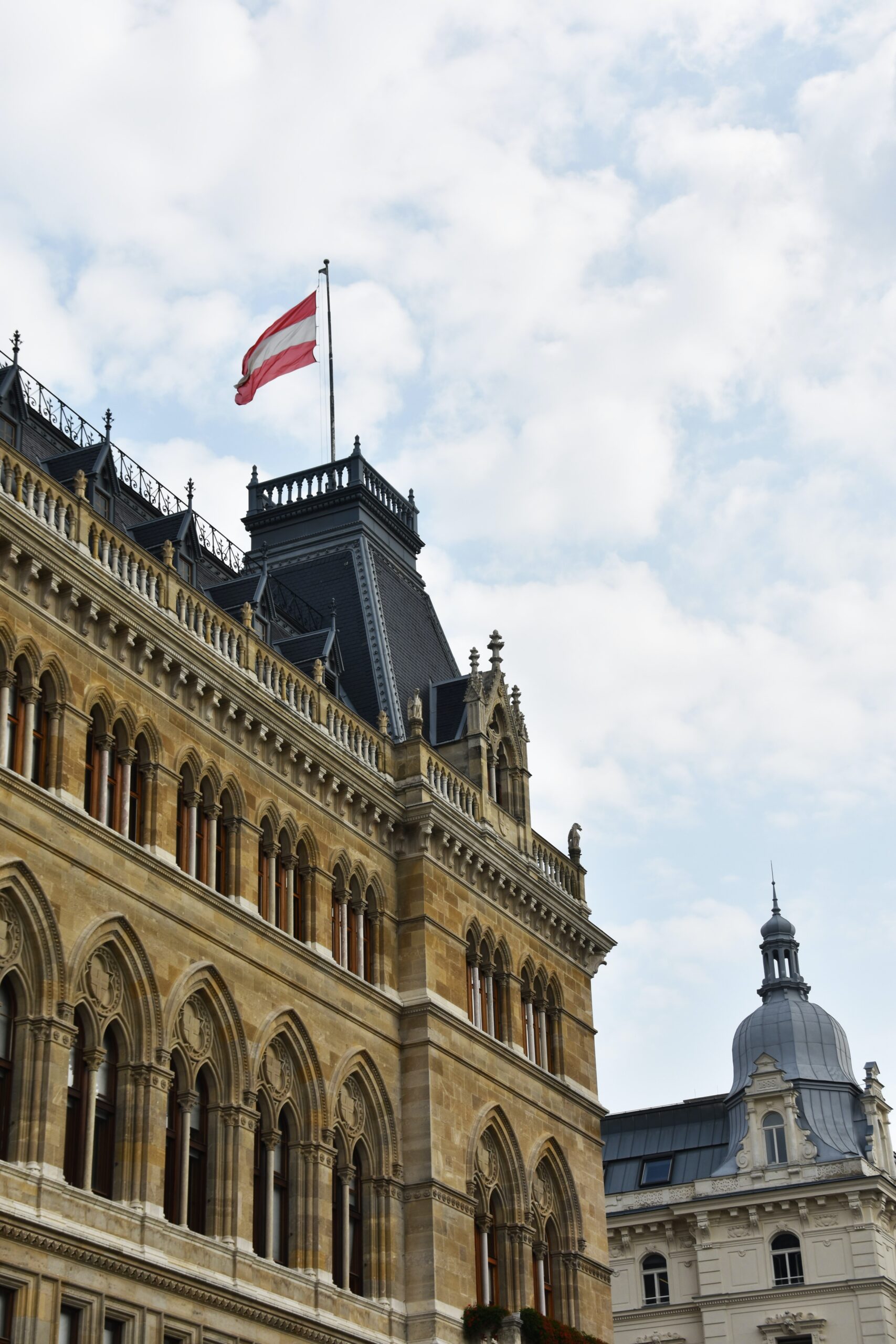Austria and its Neutrality—A Tradition with Potential
By Pascal Lottaz
Photo by Martin Fahlander on Unsplash
This article appeared first on the blog of the International Institute for Peace
On the 65th anniversary of Austria’s neutrality law, it is worth considering not only how intricately this foreign policy is linked to the country’s independence but also how its versatility could be an asset beyond the Alps.
On October 26, 1955, two related events occurred in Austria. On the one hand, it was the first day without allied soldiers on Austrian territory. That outcome had been agreed on in the “State Treaty,” of May 15, with the victors WWII powers, Britain, France, the US, and the USSR. Thereby, Austria fully regained its independence. On the other hand, it was also the day on which the country came true on a promise that the Raab government had made to obtain the Soviet approval to the treaty: the parliament enacted a federal law which established that for “the purpose of the permanent assertion of its independence and (…) the inviolability of its territory, Austria freely declares its permanent neutrality.” This compromise established that Austria would not join a military alliance, neither NATO nor the Warsaw Pact, and remain “off-limits” to both military blocs of the Cold War.
Much ink has been spilled over the question of how voluntary this “freely declared” neutrality actually was, with some critics arguing that Austria, like Finland, had no choice but to consent to its “neutralization,” and that this act was ultimately an expression of Vienna’s (and the West’s) inability to confront the USSR. Meanwhile, especially to Austrians, it is important that despite their neutrality having been modeled after that of Switzerland (on Moscow’s request), Austria’s case was different from its alpine sister nation because the instrument to do so was not an international agreement. The State Treaty itself does not mention the neutrality obligation. Instead, the neutrality law was an instance of “self-neutralization.” This is why some commentators argue that it would be within the sovereign right of Austria to unilaterally abandon this status. These discussions are somewhat dated and they either lead down a legalistic rabbit-hole or tend to become a guessing game over what the true intentions of Stalin (and later Khrushchev) were towards the “Austrian Question.”
With the benefit of hindsight, we may conclude that neither western European fears over a Soviet ploy to incorporate Austria into the Eastern bloc became a reality, nor did Moscow harbor any friendly feelings per se towards the emerging neutralism of the Cold War. In fact, the USSR was very displeased with communist Yugoslavia (and its dictator Tito) who became one of the leading voices of the nonaligned movement. Even worse, when Imre Nagy, in 1956, in Budapest tried to imitate Vienna’s foreign policy success in the wake of the Hungarian Revolution (Nagy withdrew from the Warsaw Pact and declared the neutrality of Hungary) the Soviets simply invaded the country and later executed Nagy. What these experiences tell us is that neutrality itself was certainly not enough to guarantee a country’s sovereignty during the Cold War but Austria’s permanent neutrality was the right solution at the right time, partially because of to the international situation but also because to Vienna’s willingness to use this chance.
For 65 years, Austria made good use of its neutral status. Not only did Vienna serve repeatedly as a meeting point for East and West during the Cold War but it also carved out a reputation as a reliable, and impartial platform for international diplomacy. It became home to two highly important atomic energy organizations (IAEA and CTBTO), as well as the Organization for Security and Co-operation in Europe (OSCE), and even to the Organization of the Petroleum Exporting Countries (OPEC)—despite Austria not even being a member of that club (at the insistence of Iran and Venezuela that the Headquarter should be on neutral ground).
Now, what does this all mean for the future of Austria? The security situation of 2020 is radically different from 1955 or even 1985 when Austria was still a “front line” state. Does neutrality still make sense for an EU member in the heartland of Europe? Without trying to define what neutrality can or should be (you can read about that here) let me try to answer as follows: If history gives us any clues then it is that neutrality is one option among many but that it can be a useful tool not only for the neutral state itself. Let’s not forget that 1955 was not the first time that Austria used neutrality to its advantage. Already during the American War of Independence, the Austrian Empire joined Russia in a “League of Armed Neutrality” (a fascinating curiosity of history) to defend its trading rights on the high seas against Britain. Even more importantly, Austria also declared its neutrality during the Crimean War (1853–56), and before that, Austria was one of the guarantors of Switzerland’s neutrality of 1815, which was one of the puzzle pieces of Europe’s internal security architecture—the “Concert of Europe” as it was called back then. Vienna has been playing with neutrality for many centuries in ever new forms. And it might do so again.
There is no principle contradiction between further EU integration and Austria’s neutrality. A state can be part of a larger economic and political structure and still maintain the principles of (military) neutrality. Just think of the example of the Åland islands which despite being an integral part of Finland are still today neutralized in the sense that a valid treaty exists forbidding the stationing of troops there—even those of Finland. That solved a long-standing issue with Sweden. Also, think of the bargaining power that the EU’s consensus principle gives to neutrals like Austria and Ireland to carve out “neutral spaces” within the larger European structure. And that is not even a selfish endeavor. Neutral parts of the EU could serve a larger European purpose if they became centers of the EU’s international diplomacy, hosting the world in Europe, as trusted impartial territories but deeply embedded in the European value system—just as during the Cold War. Historically, it has always been an asset to have “your neutrals” (benevolent neutrality), i.e. states that maintain a generally impartial attitude but thereby support some efforts over others. In this regard, there is no need to “choose” between participation or neutrality. Austria always did participate with neutrality, sometimes more, sometimes less.
In the spirit of “never change a running system,” I would argue that although Austria might not need its permanent neutrality anymore the way it used to in 1955, there is no good reason to give it up. It would make more sense to use this concept also in the coming decades for the benefit of Europe and the World and capitalize on the trust that the country has won as an impartial negotiator over the past 65 years.

